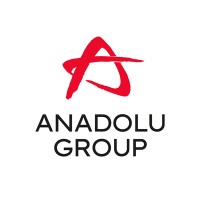Company Details
alphabet-inc
2,593
244,334
55
abc.xyz
0
ALP_1461607
In-progress

Alphabet Inc. Company CyberSecurity Posture
abc.xyzAlphabet is a collection of companies, including Google, Verily Life Sciences, GV, Calico, and X. In October 2015, Alphabet became the parent holding company of Google, with the companies far afield of our main internet products contained in Alphabet.
Company Details
alphabet-inc
2,593
244,334
55
abc.xyz
0
ALP_1461607
In-progress
Between 800 and 849

 Alphabet Inc. Global Score (TPRM)
Alphabet Inc. Global Score (TPRM)XXXX

Description: A major data breach occurred at **Alphabet Inc. (Google)**, exposing hundreds of thousands of sensitive documents and personal data from a **Salesforce database** linked to Google’s ecosystem. While **consumer Gmail and Cloud accounts were not directly compromised**, the leak triggered a surge in **phishing and impersonation attacks** targeting 2.5 billion Gmail users. The exposed data included **personal details, corporate documents, legal files, financial records, private communications, and government information**, some of which spread across search engines, making it easily accessible.Google issued a **global security alert**, urging users to update passwords, and confirmed it is investigating the breach while implementing **additional security measures**. The incident has intensified scrutiny over **data management practices**, raising concerns about **corporate espionage, identity theft, and national security risks**. Despite the breach, Alphabet’s stock remained stable, though regulators and shareholders are closely monitoring the company’s response to **restore trust** and mitigate long-term reputational and financial damage.


Alphabet Inc. has 0.0% fewer incidents than the average of same-industry companies with at least one recorded incident.
Alphabet Inc. has 56.25% more incidents than the average of all companies with at least one recorded incident.
Alphabet Inc. reported 1 incidents this year: 0 cyber attacks, 0 ransomware, 0 vulnerabilities, 1 data breaches, compared to industry peers with at least 1 incident.
Alphabet Inc. cyber incidents detection timeline including parent company and subsidiaries

Alphabet is a collection of companies, including Google, Verily Life Sciences, GV, Calico, and X. In October 2015, Alphabet became the parent holding company of Google, with the companies far afield of our main internet products contained in Alphabet.


Koç Holding is Turkey’s leading investment holding company and Koç Group is Turkey's largest industrial and services group in terms of revenues, exports, number of employees, taxes paid and market capitalization on Borsa Istanbul. Being the only Turkish company to be ranked in Fortune Global 500 Lis

Godrej was founded in 1897 by Ardeshir Godrej to help build India’s economic independence. A significant portion of our profits from our innovations was donated to India’s freedom movement. During the Spanish Flu pandemic of 1918, we made the first soap from vegetable oil with no animal fat. In

Anadolu Group operates with the vision of being “The star that links Anatolia to the world and the world to Anatolia” and maintains its activities in 8 industries (beer, soft drink, retail, agriculture, automotive, stationery, energy and health) and in 20 countries with more than 80 companies, more

Saeed Raddad Group (SRG) has had an influential and substantial presence in the commercial and business life of Saudi Arabia since 1982 with manpower of more than 34,000 employees. SRG companies operate in diversified business sectors having significant local & international operations. SRG is an in
.png)
Google's plan to acquire Wiz for $32 billion and integrate the growing cloud security platform into Google Cloud has cleared the U.S....
The US Department of Justice has ended its review of Google's planned $32 billion purchase of cybersecurity firm Wiz, clearing a major...
Alphabet Inc.'s Google and cybersecurity company Wiz Inc. cleared a key hurdle to closing their $32 billion deal, with the US government...
Cybersecurity company Wiz has cleared a U.S. Justice Department (DOJ) antitrust review of its acquisition by Google-parent Alphabet , Wiz...
“Our analysis indicates that the CL0P extortion campaign followed months of intrusion activity targeting EBS customer environments,” Mandiant...
Google said on Thursday that there were likely to be more than 100 companies affected by an ambitious hacking campaign that targeted...
Alphabet, the parent company of Google is set to acquire cybersecurity firm Wiz in a $32 billion (£24.7 billion) deal.
Alphabet's Google said hackers are sending extortion emails to an unspecified number of executives from various companies, claiming to have...
Stay alert! Google warns of a phishing scam targeting users via California phone numbers. Learn how to protect your data and avoid fraud online.

Explore insights on cybersecurity incidents, risk posture, and Rankiteo's assessments.
The official website of Alphabet Inc. is http://www.abc.xyz.
According to Rankiteo, Alphabet Inc.’s AI-generated cybersecurity score is 835, reflecting their Good security posture.
According to Rankiteo, Alphabet Inc. currently holds 0 security badges, indicating that no recognized compliance certifications are currently verified for the organization.
According to Rankiteo, Alphabet Inc. is not certified under SOC 2 Type 1.
According to Rankiteo, Alphabet Inc. does not hold a SOC 2 Type 2 certification.
According to Rankiteo, Alphabet Inc. is not listed as GDPR compliant.
According to Rankiteo, Alphabet Inc. does not currently maintain PCI DSS compliance.
According to Rankiteo, Alphabet Inc. is not compliant with HIPAA regulations.
According to Rankiteo,Alphabet Inc. is not certified under ISO 27001, indicating the absence of a formally recognized information security management framework.
Alphabet Inc. operates primarily in the Holding Companies industry.
Alphabet Inc. employs approximately 2,593 people worldwide.
Alphabet Inc. presently has no subsidiaries across any sectors.
Alphabet Inc.’s official LinkedIn profile has approximately 244,334 followers.
Alphabet Inc. is classified under the NAICS code 55, which corresponds to Management of Companies and Enterprises.
Yes, Alphabet Inc. has an official profile on Crunchbase, which can be accessed here: https://www.crunchbase.com/organization/alphabet.
Yes, Alphabet Inc. maintains an official LinkedIn profile, which is actively utilized for branding and talent engagement, which can be accessed here: https://www.linkedin.com/company/alphabet-inc.
As of November 27, 2025, Rankiteo reports that Alphabet Inc. has experienced 1 cybersecurity incidents.
Alphabet Inc. has an estimated 143 peer or competitor companies worldwide.
Incident Types: The types of cybersecurity incidents that have occurred include Breach.
Detection and Response: The company detects and responds to cybersecurity incidents through an incident response plan activated with yes (network-wide alert issued), and containment measures with password reset campaign for all gmail users, containment measures with global security alert, and remediation measures with additional security measures deployed, remediation measures with investigation ongoing, and communication strategy with public statement emphasizing user safety/privacy, communication strategy with reassurance to consumers and investors, and enhanced monitoring with yes (implied by 'additional security measures')..
Title: Google Data Leak via Salesforce Database Breach
Description: A major data leak involving one of Google's Salesforce databases exposed hundreds of thousands of sensitive documents and personal data, triggering a global security alert for 2.5 billion Gmail users. While consumer Gmail and Cloud accounts were not directly compromised, the incident led to a surge in phishing and impersonation attacks. The leaked data included personal details, corporate documents, government information, legal files, financial records, and private communications, raising concerns about identity theft, corporate espionage, and national security threats.
Type: Data Breach
Attack Vector: Third-Party Vendor (Salesforce Database)Data Exposure via Search Engines
Common Attack Types: The most common types of attacks the company has faced is Breach.

Data Compromised: Sensitive documents, Personal data, Corporate documents, Government information, Legal files, Financial records, Private communications, Personally identifiable information (pii)
Systems Affected: Salesforce Database (Google's third-party system)Gmail (indirectly via phishing surge)Google Cloud (indirectly via phishing surge)
Operational Impact: Increased phishing/impersonation attacksGlobal security alert issuedPassword reset campaign for 2.5B users
Brand Reputation Impact: Increased scrutiny of data management practicesErosion of trust (potential)Regulatory and shareholder concern
Identity Theft Risk: High (due to exposed PII and sensitive records)
Commonly Compromised Data Types: The types of data most commonly compromised in incidents are Personal Details, Corporate Documents, Government Information, Legal Files, Financial Records, Private Communications, Pii and .

Entity Name: Alphabet Inc. (Google)
Entity Type: Public Company (Parent: Alphabet Inc.)
Industry: Technology (Internet Services, Cloud Computing, Advertising)
Location: Mountain View, California, USA (Global Operations)
Size: Large (Fortune 500, ~190,000 employees)
Customers Affected: 2.5 billion Gmail users (indirectly via phishing risk)

Entity Name: Salesforce (Third-Party Vendor)
Entity Type: Public Company
Industry: Cloud-Based Software (CRM)
Location: San Francisco, California, USA
Size: Large

Incident Response Plan Activated: Yes (Network-wide alert issued)
Containment Measures: Password reset campaign for all Gmail usersGlobal security alert
Remediation Measures: Additional security measures deployedInvestigation ongoing
Communication Strategy: Public statement emphasizing user safety/privacyReassurance to consumers and investors
Enhanced Monitoring: Yes (implied by 'additional security measures')
Incident Response Plan: The company's incident response plan is described as Yes (Network-wide alert issued).

Type of Data Compromised: Personal details, Corporate documents, Government information, Legal files, Financial records, Private communications, Pii
Number of Records Exposed: Hundreds of thousands
Sensitivity of Data: High (confidential legal, financial, and government records)
Data Exfiltration: Yes (data spread across multiple sources and accessible via search engines)
File Types Exposed: DocumentsLegal filesFinancial recordsCommunications
Personally Identifiable Information: Yes
Prevention of Data Exfiltration: The company takes the following measures to prevent data exfiltration: Additional security measures deployed, Investigation ongoing, .
Handling of PII Incidents: The company handles incidents involving personally identifiable information (PII) through by password reset campaign for all gmail users, global security alert and .

Lessons Learned: Systemic issues in data handling by tech industry, Need for stronger data protection standards, Importance of third-party vendor security, Transparency in data management practices

Recommendations: Stricter oversight of data security protocols, Enhanced third-party risk management, Proactive monitoring for exposed data, User education on phishing risksStricter oversight of data security protocols, Enhanced third-party risk management, Proactive monitoring for exposed data, User education on phishing risksStricter oversight of data security protocols, Enhanced third-party risk management, Proactive monitoring for exposed data, User education on phishing risksStricter oversight of data security protocols, Enhanced third-party risk management, Proactive monitoring for exposed data, User education on phishing risks
Key Lessons Learned: The key lessons learned from past incidents are Systemic issues in data handling by tech industry,Need for stronger data protection standards,Importance of third-party vendor security,Transparency in data management practices.
Implemented Recommendations: The company has implemented the following recommendations to improve cybersecurity: Proactive monitoring for exposed data, Stricter oversight of data security protocols, User education on phishing risks and Enhanced third-party risk management.

Source: Article describing Alphabet/Google data breach and market reaction
Additional Resources: Stakeholders can find additional resources on cybersecurity best practices at and Source: Article describing Alphabet/Google data breach and market reaction.

Investigation Status: Ongoing (Google investigating and implementing additional security measures)
Communication of Investigation Status: The company communicates the status of incident investigations to stakeholders through Public Statement Emphasizing User Safety/Privacy and Reassurance To Consumers And Investors.

Stakeholder Advisories: Global Security Alert To 2.5B Gmail Users, Public Statement On Investigation.
Customer Advisories: Password change advisory for all usersWarning about phishing/impersonation attacks
Advisories Provided: The company provides the following advisories to stakeholders and customers following an incident: were Global Security Alert To 2.5B Gmail Users, Public Statement On Investigation, Password Change Advisory For All Users, Warning About Phishing/Impersonation Attacks and .

Root Causes: Third-Party Vendor (Salesforce) Database Vulnerability, Data Exposure Via Search Engines, Lack Of Regulatory Oversight In Tech Industry,
Corrective Actions: Additional Security Measures (Unspecified), Investigation Into Breach Scope, Password Reset Enforcement,
Post-Incident Analysis Process: The company's process for conducting post-incident analysis is described as Yes (implied by 'additional security measures').
Corrective Actions Taken: The company has taken the following corrective actions based on post-incident analysis: Additional Security Measures (Unspecified), Investigation Into Breach Scope, Password Reset Enforcement, .
Most Significant Data Compromised: The most significant data compromised in an incident were Sensitive documents, Personal data, Corporate documents, Government information, Legal files, Financial records, Private communications, Personally Identifiable Information (PII) and .
Most Significant System Affected: The most significant system affected in an incident was Salesforce Database (Google's third-party system)Gmail (indirectly via phishing surge)Google Cloud (indirectly via phishing surge).
Containment Measures in Most Recent Incident: The containment measures taken in the most recent incident was Password reset campaign for all Gmail usersGlobal security alert.
Most Sensitive Data Compromised: The most sensitive data compromised in a breach were Private communications, Personally Identifiable Information (PII), Government information, Corporate documents, Sensitive documents, Legal files, Financial records and Personal data.
Number of Records Exposed in Most Significant Breach: The number of records exposed in the most significant breach was 0.
Most Significant Lesson Learned: The most significant lesson learned from past incidents was Transparency in data management practices.
Most Significant Recommendation Implemented: The most significant recommendation implemented to improve cybersecurity was Proactive monitoring for exposed data, Stricter oversight of data security protocols, User education on phishing risks and Enhanced third-party risk management.
Most Recent Source: The most recent source of information about an incident is Article describing Alphabet/Google data breach and market reaction.
Current Status of Most Recent Investigation: The current status of the most recent investigation is Ongoing (Google investigating and implementing additional security measures).
Most Recent Stakeholder Advisory: The most recent stakeholder advisory issued was Global security alert to 2.5B Gmail users, Public statement on investigation, .
Most Recent Customer Advisory: The most recent customer advisory issued was an Password change advisory for all usersWarning about phishing/impersonation attacks.
.png)
Angular is a development platform for building mobile and desktop web applications using TypeScript/JavaScript and other languages. Prior to versions 19.2.16, 20.3.14, and 21.0.1, there is a XSRF token leakage via protocol-relative URLs in angular HTTP clients. The vulnerability is a Credential Leak by App Logic that leads to the unauthorized disclosure of the Cross-Site Request Forgery (XSRF) token to an attacker-controlled domain. Angular's HttpClient has a built-in XSRF protection mechanism that works by checking if a request URL starts with a protocol (http:// or https://) to determine if it is cross-origin. If the URL starts with protocol-relative URL (//), it is incorrectly treated as a same-origin request, and the XSRF token is automatically added to the X-XSRF-TOKEN header. This issue has been patched in versions 19.2.16, 20.3.14, and 21.0.1. A workaround for this issue involves avoiding using protocol-relative URLs (URLs starting with //) in HttpClient requests. All backend communication URLs should be hardcoded as relative paths (starting with a single /) or fully qualified, trusted absolute URLs.
Forge (also called `node-forge`) is a native implementation of Transport Layer Security in JavaScript. An Uncontrolled Recursion vulnerability in node-forge versions 1.3.1 and below enables remote, unauthenticated attackers to craft deep ASN.1 structures that trigger unbounded recursive parsing. This leads to a Denial-of-Service (DoS) via stack exhaustion when parsing untrusted DER inputs. This issue has been patched in version 1.3.2.
Forge (also called `node-forge`) is a native implementation of Transport Layer Security in JavaScript. An Integer Overflow vulnerability in node-forge versions 1.3.1 and below enables remote, unauthenticated attackers to craft ASN.1 structures containing OIDs with oversized arcs. These arcs may be decoded as smaller, trusted OIDs due to 32-bit bitwise truncation, enabling the bypass of downstream OID-based security decisions. This issue has been patched in version 1.3.2.
Suricata is a network IDS, IPS and NSM engine developed by the OISF (Open Information Security Foundation) and the Suricata community. Prior to versions 7.0.13 and 8.0.2, working with large buffers in Lua scripts can lead to a stack overflow. Users of Lua rules and output scripts may be affected when working with large buffers. This includes a rule passing a large buffer to a Lua script. This issue has been patched in versions 7.0.13 and 8.0.2. A workaround for this issue involves disabling Lua rules and output scripts, or making sure limits, such as stream.depth.reassembly and HTTP response body limits (response-body-limit), are set to less than half the stack size.
Suricata is a network IDS, IPS and NSM engine developed by the OISF (Open Information Security Foundation) and the Suricata community. In versions from 8.0.0 to before 8.0.2, a NULL dereference can occur when the entropy keyword is used in conjunction with base64_data. This issue has been patched in version 8.0.2. A workaround involves disabling rules that use entropy in conjunction with base64_data.

Get company history
















Every week, Rankiteo analyzes billions of signals to give organizations a sharper, faster view of emerging risks. With deeper, more actionable intelligence at their fingertips, security teams can outpace threat actors, respond instantly to Zero-Day attacks, and dramatically shrink their risk exposure window.
Identify exposed access points, detect misconfigured SSL certificates, and uncover vulnerabilities across the network infrastructure.
Gain visibility into the software components used within an organization to detect vulnerabilities, manage risk, and ensure supply chain security.
Monitor and manage all IT assets and their configurations to ensure accurate, real-time visibility across the company's technology environment.
Leverage real-time insights on active threats, malware campaigns, and emerging vulnerabilities to proactively defend against evolving cyberattacks.




